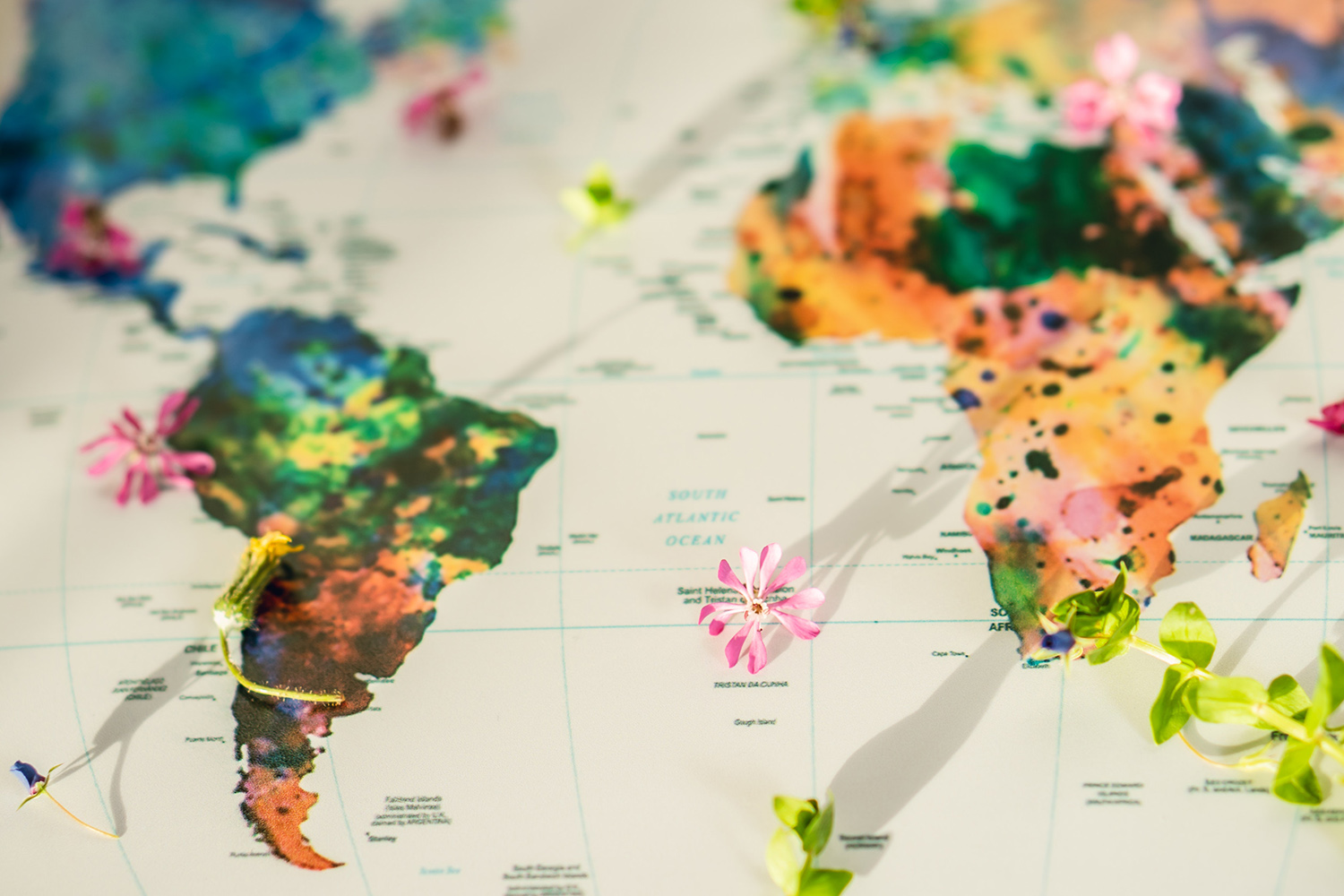We Would Like to Travel Sustainably, but We Don't
Most people like to travel and most people care for the environment. So many people say that they would want to travel in a more sustainable way, but so far hardly anybody does. Why is that and how do we get going greener?
Jochen Dallmer
Customers will have to constantly ask for more sustainable offers and options. Demand is a key driver for change in a market-based economy.
The gap between what we say and how we travel
Let's start with Germany to give an example: Germans like to travel. Germans particularly enjoy travelling to other countries. In 2018, Germans took 71 million holiday trips (more than 5 days long), 41% of which were by aeroplane. Among them 51.1 million trips went abroad, here the plane share was 56%. (1)
Germans also care for the environment. They are keen on separating their waste and recycling trash and many of them love nature. They also care for sustainable development. So how does that reflect in tourism and travelling? Well, here is where it gets interesting...
A recent study (2019), commissioned by the German Federal Ministry for the Environment, Nature Conservation and Nuclear Safety (BMU), came to the conclusion that more than half of the population in Germany is in favour of more environmentally-friendly and socially sustainable holidays, but that far less than 10 per cent actually put this into practice when booking and designing their trips. (2)
But it’s nothing to blame the Germans for in particular. Similar results are shown by international surveys and studies. In a 2019 survey in the US, 42% of respondents said sustainability was one of their priorities when choosing a holiday. However, the same survey showed that, overall, only 15% of respondents had a solid understanding of sustainability. In another survey, 61% said they would like to travel more sustainably in the future, with as many as 80% wanting to give it more consideration. Especially younger travellers (18–34) show a high motivation here. (3) But nowhere do such numbers match reality: sustainable tourism is still marginal and people don't book according to the criteria they say they would look for. Globally tourism has grown and especially long-distance travel has been thriving until 2019.
What makes eco-friendly tourism somewhat difficult
When it comes to choosing and organising holidays, sustainable aspects in terms of ecology have so far only played a secondary role, no matter what people say when being asked about sustainable tourism. But why is that? There are a few main points that make up the image:
First of all, the holiday season is seen as a time to indulge oneself, so to speak. Vacations are the time when people want to treat themselves. Those who spend their daily lives with strenuous work want to relax and enjoy themselves, not burden themselves with self-imposed restrictions. Those who are travelling for fun want to have a unique experience and are therefore tempted to leave environmental considerations aside. Last but not least, social aspects play a role: how and where we spend our holiday also has to do with status and the reports (or instant social media status reports) from the holidays with which we want to be recognised and possibly admired by friends and colleagues.
Secondly, although sustainability is considered very desirable in tourism, there isn’t really the willingness to pay a little more for it. Recent surveys show that up to 66% of travellers say that they are willing to pay more. (4) But this isn’t reflected in the real booking numbers, so people apparently say what they think is right or what they would like to follow, but they don't.
The third aspect is that to organise one's holidays more consistently according to appropriate criteria hasn’t really been very easy until now. There are many criteria to be considered, there is no consistent labelling and overall information is differently displayed by each booking agent or travel company.
How we can overcome the obstacles and travel different
Reading the above information shouldn’t make us frustrated but curious and up for the challenge to make a difference. After all, there’s some progress and we simply have to speed it up a little.
A to-do list to tackle the issue would include the following items:
- There needs to be clearer criteria on what sustainable tourism is. Here the tourism industry needs to act, but maybe Governments should monitor the process.
- Information should be displayed clearly. Standardised labels would be helpful and any 'greenwashing' needs to be stopped.
- Customers (that is us, the travellers!) will have to constantly ask for more sustainable offers and options. Demand is a key driver for change in a market-based economy.
- Travellers have to consider the budget and understand that sustainability is a criteria like quality: worth spending a little extra.
- We have to change our patterns and try out new ways of travelling. The ideal of racing around the globe to see the 1,001 places everybody must have seen is totally 20th-century lifestyle. Some of the best holidays could be spent nearby. We have to try it out and find it out for ourselves and share the word.
Travelling different for future goes along with living different in the future. The issues described above roughly correspond to behaviour in other areas: in general, people express their motivation for sustainable behaviour (consumption, mobility, housing, etc.), but the real numbers do not follow suit. So let us get active together and discover pathways to a sustainable future – both in travelling and other areas.
References
- UBA (2019): Schwerpunkt Magazin Fliegen, S. 32 (10.3.2022)
- NIT (2019): Nachhaltige Urlaubsreisen: Bewusstseins- und Nachfrageentwicklung. (10.3.2022)
- WTTC 2021: A Net Zero Roadmap for Travel & Tourism, page 9. (7.3.2022)
CREST 2020, Trends and Statistics, page7. (8.3.2022) - CREST 2019, Trends and Statistics, page 4-5 (9.3.2022)


